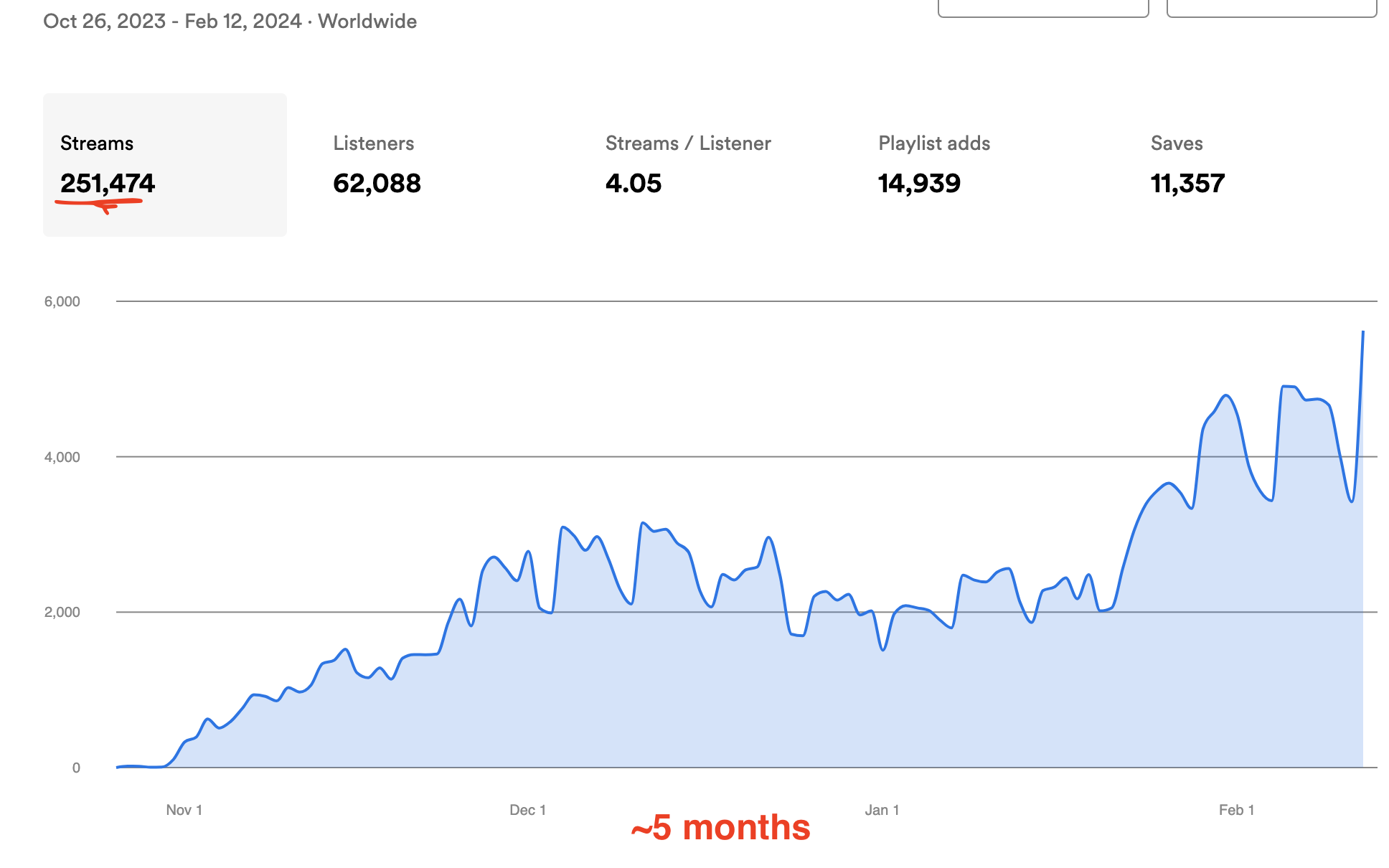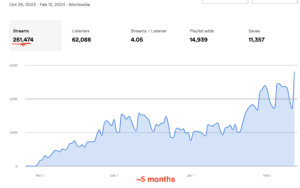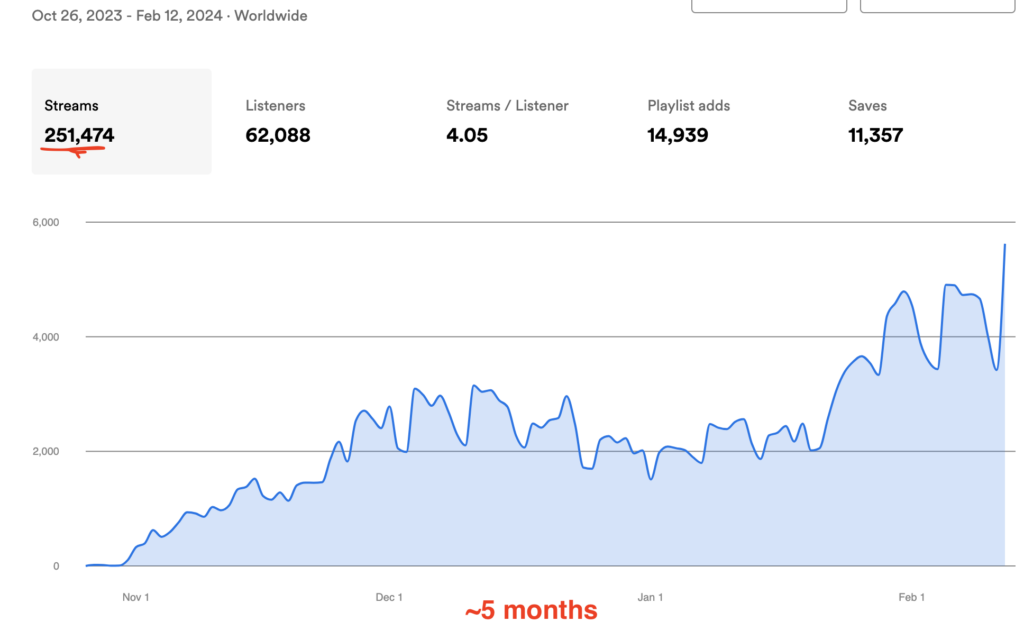It’s a good question. It’s a hard question. It’s also the premise of Derek Thompson’s Hit Makers, which I just finished yesterday while sitting at Starbucks.
(Yes, I finally got away from Panera. I think we can all agree that it was time.)
I don’t typically rate books, because I don’t believe that the quality of art can be strictly quantified… but if you pressed me hard I’d give it a 6.31/10. It’s not a classic, for sure, but it’s interesting enough that I’m still thinking about the ideas a day later.
I’ve found that the best way to unstick things from my head is to write them down – so with that said, here are three concepts from Derek Thompson about popularity that I’ve been chewing on.
1. We like familiar things.
One of the book’s recurring themes is that people prefer what they know. It’s a common-sense insight, but the flip side (that people are averse to what they don’t know) makes hit-making pretty hard, especially for people like you and I.
Let’s assume, for a second, that you aren’t Drake or Taylor Swift; instead, assume that you’re an artist who is relatively unknown. Now, let’s imagine that you and Taylor Swift each put out songs that are identical in content, catchiness, and quality… and let’s even go one step further and say that you both have access to the same avenues of distribution and similar marketing budgets. (We can dream, right?)
The above scenario sounds pretty good, but here’s the punchline: Even if your music and marketing were equal in all other aspects, Taylor Swift’s song would be far more likely to be a hit – just because people already know Taylor Swift.
Familiarity is the foundation of hit-making.
That’s true in every arena (the vast majority of box-office smashes are based on well-known stories or sequels), but it’s especially true in music. The vast majority of charting songs are released by artists who have already charted. Something like 90% of the time people choose to listen to music, they pick something they’ve heard before.
Assuming that you aren’t Taylor Swift, all of this means that getting your music heard is an uphill battle.
So, how do new hits break through?
Maybe more to the point – how do relatively unknown indie artists get the attention of people who are prone to prefer what they already know?
Thompson’s book doesn’t answer this in straight lines, but it does suggest a few solutions.
That brings me to idea number two:
2. Consistency creates familiarity.
I’m a walking case study for this.
It may surprise you, but I am not, generally speaking, very well known. In fact, most people in the world do not know me, a point that’s proven every time I order a drink at Starbucks and they spell my name wrong.
(It’s Jon, not John – and yes, that letter does make a huge difference to my self-concept, but no, I can’t bring myself to mention it to a barista, because I don’t want to be a Karen. On a related note, my mom’s name is Karen, and she is a saintly woman who would never complain to a barista.)
But despite the fact that almost nobody in the world knows me, somewhere around 10,000 people read the stuff I write. You read what I write – at least some of it, at least sometimes – even though, in the scheme of things, I’m basically a nobody.
Why? Why do a bunch of people read me?
There are nuanced answers, of course, but probably the simplest reason is this: People read me because they’ve read me before.
The data bears that out (to a ridiculous extent). Something like 95% of my readers have been on my email list for months. Something like 100% of you had read something I’d written before you opened read this post.
I’ve been writing blog posts since 2015 and weekly newsletters since around 2020. By this time, even if I’m not familiar to the mass market, I’m probably familiar to you.
And that’s why you’re reading these words.
I haven’t had the means to become familiar to a ton of people at once – I’m still waiting for Harry Styles to reach out so we can make that happen – but by being consistent, I’ve become familiar to a small, but growing, number of people.
The same principle applies to music, which is why it’s so important to keep creating consistently if you want to build an audience. In a world dominated by Taylor Swifts, making music consistently is your best chance at getting people to listen to you.
But it’s not your only chance.
3. Context can be a trojan horse.
If people are averse to what’s unfamiliar, then how do you get them to engage with new things at all? The short answer: You associate new things with known things.
You wrap new things in familiar packaging.
This is why genre references are so helpful (i.e., “Olivia Rodrigo is this generation’s Taylor Swift”). It’s why cross-media associations play such a big role in breaking music (i.e., “I heard that song on Stranger Things“). It’s why upcoming artists look for collaborations with bigger stars. It’s why TikTok stars have influence.
If you don’t have familiarity, you can associate yourself with things that do – and as you do so, some of it will rub off.
Sub-point here that’s loosely related: According to Thompson, there’s really no such thing as “virality” online. Virality is conceptualized as a series of rapid 1:1 transmissions – like giving one other person Covid, who gives one other person Covid, etc. Instead, “viral” ideas almost always benefit from a big broadcast; rather than going from one person to one person many times, they get super-spread to tons of people at once through big platforms.
In other words, you won’t make something popular by getting ten people to tell ten people; you’ll make something popular by getting Justin Bieber to tweet about it.
The takeaway for indie artists: Look for things your ideal listener is already familiar with, then look for ways to associate yourself with those things.
There’s a lot more to popularity, of course.
Thompson calls it a semi-chaotic system; in other words, it’s impossible to predict with total certainty what will and won’t become popular, because there’s no strict formula and there’s more randomness than most of us would like to admit.
But those three and a half concepts stuck with me. Maybe they’ll stick with you, and maybe they’ll even be helpful as you undertake the uphill journey of reaching new ears.
Don’t worry, though – whether you achieve the name recognition of Taylor Swift or resign yourself to having your name misspelled by every barista you meet for the rest of your life, your music still matters.
Keep making it, and good luck.









